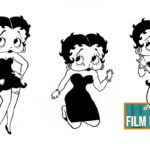
The newest adaptation of Dune is arriving in the U.S.! This Dune film, directed by Denis Villeneuve, did well in other countries when it was released in September, earning more than $76.5 million so far. However, it did cost about $165 million to produce, so here’s hoping it does well when it hits HBO Max and U.S. theaters on the 22nd.
Like others before, this Dune film is based on the sci-fi fantasy novel written by Frank Herbert. The story is set twenty thousand years into the future, when mankind has spread out to more than ten thousand worlds. Many feuding noble houses known as the Landsraad dominate the empire. Instead of oil and gas, commerce and civilization revolve around a substance called spice, which is only found on the planet Dune –a harsh desert wasteland where giant worms roam the sands. A man named Paul Atreides and his family are forced to move to Dune, where Paul develops incredible powers.

Dune is number three on the list of Adam Savage’s Top 5 Science Fiction Books. Savage testifies that it has “deep histories, lovely characterizations, familiar and strange politics. For as many questions it answers about the future or the world that Frank Herbert creates, it creates twice as many questions, and that’s the mark of any good science fiction. You feel like you’re encountering a fully-realized world because there’s so much you don’t understand.”
Did you know that the sand dunes in Oregon inspired Frank Herbet to write this book? Herbert wrote that these shifting dunes could “swallow whole cities, lakes, rivers, highways.” Further research ignited his interest in desert ecology, religion, and politics. Herbert was also inspired by his own experiences with psilocybin and mushrooms. Go figure!

Herbert spent five years researching, writing, and revising his draft of Dune. In the 1960’s he published a few serial stories of Dune, which were expanded, reworked, and submitted to more than twenty publishers, only to be rejected every time. In 1965, the novel was finally published by a company called Chilton Books, which traditionally published auto repair manuals.
Frank Herbert dedicated his book “to the people whose labors go beyond ideas into the realm of ‘real materials’—to the dry-land ecologists, wherever they may be, in whatever time they work, this effort at prediction is dedicated in humility and admiration.”

Over the years, time and time again, Dune has been immensely complicated and difficult for filmmakers to adapt into a visual medium. Many people have even deemed it ‘impossible.’ Herbert himself said the book’s depth and symbolism intimidated many filmmakers. An article on Wired elaborated on this challenge by stating, “(Dune) has four appendices and a glossary of its own gibberish, and its action takes place on two planets, one of which is a desert overrun by worms the size of airport runways. Lots of important people die or try to kill each other, and they’re all tethered to about eight entangled subplots.”
Sounds like a sci-fi Game of Thrones. That might not be far off, as the challenge of adapting Dune has been compared to the challenge of adapting both George R.R. Martin and J.R.R. Tolkien’s epic fantasy sagas. But unlike those stories, Dune has yet to see a successful (or at least widely-appreciated) adaptation.
In the 1970s, filmmaker Alejandro Jodorowsky attempted to make a film based on Dune, but after spending nearly three years in development, the project was canceled due to budgeting issues. Fortunately, a documentary called Jodorowsky’s Dune was released in 2013 detailing the filmmaker’s endeavors.
I grew up watching the 1984 Dune movie by David Lynch. Funny enough, I often got it confused with Krull until I was older and could more easily differentiate between the two 80’s sci-fi fantasy films. Can you blame me? They were released a year apart from each other!

Did you know that David Lynch received a directing offer for Return of the Jedi around the same time he received one for Dune? Despite the fact he hadn’t read the book, wasn’t familiar with the story, and was reportedly not even interested in science fiction at all, he agreed to both direct and write the screenplay for Dune.
Sadly, David Lynch’s adaptation is often described as being a failure, flawed, universally hated, and “met with near-unanimous derision.” Reviews of his version say that it was “incomprehensible to those unfamiliar with the book,” and that fans would be “disappointed by the way it strayed from the book’s plot.”
Roger Ebert, the first film critic to win the Pulitzer Prize for Criticism, deplored the adaptation. He said, “It took Dune about nine minutes to completely strip me of my anticipation. This movie is a real mess, an incomprehensible, ugly, unstructured, pointless excursion into the murkier realms of one of the most confusing screenplays of all time.”
In a Hollywood Mask article by Rakesh Chaudhary, David Lynch described his adaptation of Dune as “a huge, gigantic sadness in my life. The film is not the film I would’ve made had I had final control.” It is truly a tragedy when a director spends three years working diligently on a film only to wish to take his name off the final product.

In an article by Daniel D. Snyder for The Atlantic, Lynch’s Dune was described as an “anti-Star Wars, undoing everything Lucas’s trilogy did to make sci-fi a friendly place.”
Yikes. But the same article also states that, “(Dune) is certainly a different kind of sci-fi than Star Wars, which was created to comfort and entertain. Dune wanted to challenge, and though its stumbling attempts to pontificate on religion and ecology may have been its downfall, those attempts also produced some of the film’s most resonant moments.”
Snyder goes on to justify, “If the movie’s goal was to create, like the book, a world that felt utterly alien, then Lynch and his surreal style were the right choice. With its bizarre dream sequences, rife with images of unborn fetuses and shimmering energies, and unsettling scenery like the industrial hell of the Harkonnen homeworld, the film’s actually closer to Kubrick (2001: A Space Odyssey) than Lucas. It seeks to put the viewer somewhere unfamiliar while hinting at a greater, hidden story.” He claims that “Science fiction is often about feeling just the right amount of lost.”
Novel author Frank Herbert was also in favor of the Lynch film, claiming “I hear my dialogue all the way through. There are some interpretations and liberties, but you’re gonna come out knowing you’ve seen Dune.”
You can’t help but wonder what he would have said if he were alive today to see the new adaptation by Villeneuve.
Lynch has stated that he has “zero interest” in Villeneuve’s Dune. Unlike Lynch, Villeneuve is a fan of the novel, and has expressed his desire to make Dune into “the adaptation of his dreams.”
Do you think Villenueve will succeed where Lynch and other directors did not?
What are your thoughts on Lynch’s Dune?
Are some book-to-movie adaptations truly impossible to achieve?
Let us know in the comments!







